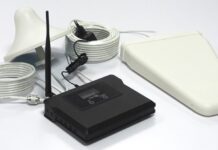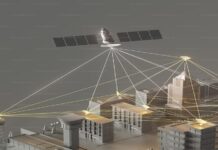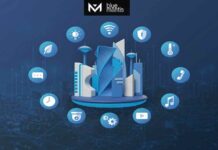Software, technologies, digital services and cloud platform exhibited at Innovation Day USA to help customers embrace digitalization MindSphere, the cloud-based, open IoT operating system from Siemens, will play an important role to power double-digit growth in digital businesses 30% increase in R&D spending for U.S. since fiscal 2014
Every day, billions of connected devices and machines bridge the real and virtual worlds, changing the way people live, travel, build and work. Today, at Siemens’ U.S. Research and Development (R&D) hub, Siemens showcased innovative technologies that are helping industries from manufacturing to energy management to transportation embrace the power of data in a digital and connected world.
Global and U.S. executives and technology experts demonstrated via virtual and interactive presentations how emerging trends and technologies like blockchain-based microgrids, additive manufacturing, artificial intelligence, autonomous robots, digital infrastructure, and MindSphere – the cloud-based, open IoT operating system from Siemens are changing lives for the better.
“Siemens is driving the digital transformation globally and in the U.S.,” explained Roland Busch, Chief Technology Officer and Member of the Managing Board of Siemens AG. “That’s why we invest about $1 billion annually in research and development in the U.S. We offer an unmatched digital portfolio consisting of software, digital services, security and MindSphere. This enables our customers to increase their efficiency, flexibility, quality and reduce time to market.”
With around $10 billion in investments in U.S. software companies since 2007, Siemens has made a significant push into the software space with acquisitions including: UGS, eMeter, Camstar, Polarion, and CD-adapco. The company’s most recent investment is the acquisition of Oregon-based Mentor Graphics for around $4.5 billion. Once the acquisition is completed, Siemens will be the first and only player to combine mechanical, thermal, electronic and software design and simulation capabilities on a single integrated platform.
These software acquisitions and technology integrations further demonstrate how the company’s digital strategy is taking hold. Taken together, they are expected to lead to double-digit revenue growth through 2020 in Siemens’ digital business. In fiscal 2016, Siemens’ businesses with software and digital services generated around $4.6 billion, some 12 percent more than in the prior year.
MindSphere, the Siemens,cloud-based open operating system for the Internet of Things, will be a key component to achieving these growth targets as it will enable customers across all industries to digitize their enterprises. A strong ecosystem of global partners is already established including IBM, Atos, Microsoft, SAP, Accenture and many others. MindSphere, combined with our “Flex LTP” platform, makes it possible to improve the efficiency of plants by recording and analyzing large volumes of production data to, for example, implement predictive maintenance schemes and optimize asset performance. Siemens has deployed this in its Charlotte, North Carolina Energy hub. And there are many more domain specific platforms and applications running on MindSphere, such as: Navigator for intelligent buildings, teamplay for healthcare, Railigent for rolling stock and EnergyIP for smart grids.
“Half of all data that exists in the world was created only last year. Yet less than half of one percent of this data was used or analyzed,” said Judy Marks, CEO of Siemens USA. “In today’s innovation economy, Germany is a leader in machine tools and robots and the U.S. stands out as a leader in software innovation. This gives us a leg up on the competition and enables us to deliver tremendous value to our customers in all industries embracing digitalization.”
Siemens has announced an increase in global investments in research and development in fiscal 2017 of more than $300 million to around $5.4 billion. Over the last two years – from fiscal 2014 to fiscal 2016 – R&D spending in the U.S. has increased by more than 30% and a significant portion of these funds are earmarked for automation, digitalization, and decentralized energy systems.
Siemens employs more than 7,500 software engineers in the U.S. and as of September, 30, 2016, the company held more than 15,000 patents and about 900 invention disclosures in the U.S. Currently, more than 250 top scientists and technologists work at Siemens’ U.S. Research Centers in Berkeley (Information & Automation), Charlotte (Advanced Manufacturing) and Princeton (Information & Automation).
This press release, press pictures and further material is available at www.usa.siemens.com/innovationUS.
About Siemens USA
Siemens Corporation is a U.S. subsidiary of Siemens AG, a global powerhouse focusing on the areas of electrification, automation and digitalization. One of the world’s largest producers of energy-efficient, resource-saving technologies, Siemens is a leading supplier of systems for power generation and transmission as well as medical diagnosis. With approximately 351,000 employees in 190 countries, Siemens reported worldwide revenue of $88.1 billion in fiscal 2016. Siemens in the USA reported revenue of $23.7 billion, including $5.4 billion in exports, and employs approximately 50,000 people throughout all 50 states and Puerto Rico.
Siemens AG (Berlin and Munich) is a global technology powerhouse that has stood for engineering excellence, innovation, quality, reliability and internationality for more than 165 years. The company is active in more than 200 countries, focusing on the areas of electrification, automation and digitalization. One of the world’s largest producers of energy-efficient, resource-saving technologies, Siemens is a leading supplier of efficient power generation and power transmission solutions and a pioneer in infrastructure solutions as well as automation, drive and software solutions for industry. The company is also a leading provider of medical imaging equipment – such as computed tomography and magnetic resonance imaging systems – and a leader in laboratory diagnostics as well as clinical IT. In fiscal 2016, which ended on September 30, 2016, Siemens generated revenue of €79.6 billion and net income of €5.6 billion. At the end of September 2016, the company had around 351,000 employees worldwide. Further information is available on the Internet at www.siemens.com.




















